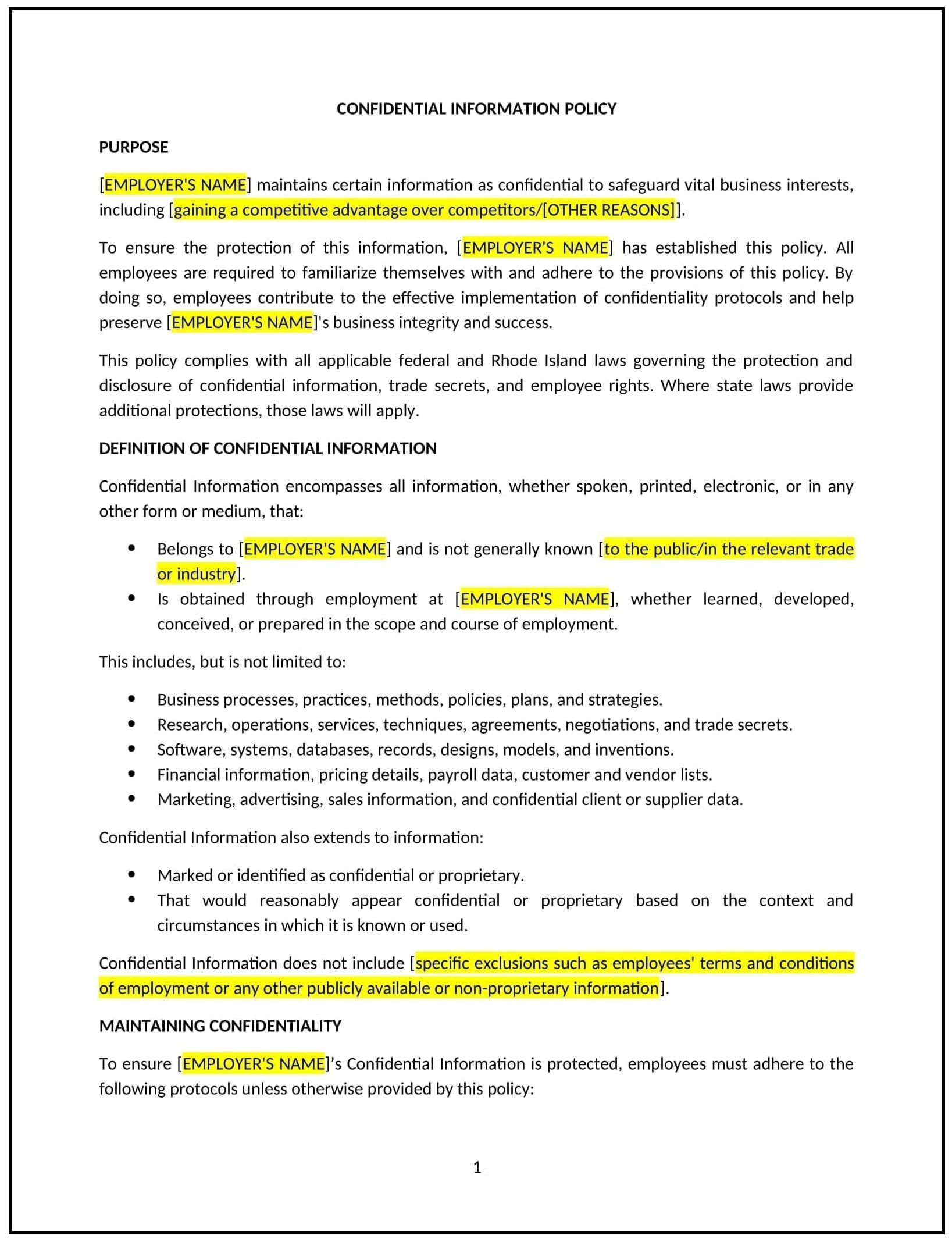Confidential information policy (Rhode Island): Free template
Got contracts to review? While you're here for policies, let Cobrief make contract review effortless—start your free review now.

Customize this template for free
Confidential information policy (Rhode Island)
This confidential information policy is designed to help Rhode Island businesses protect sensitive data, such as trade secrets, client information, and employee records. It outlines procedures for handling, storing, and sharing confidential information.
By adopting this policy, businesses can safeguard sensitive data, reduce the risk of breaches, and align with privacy and security best practices.
How to use this confidential information policy (Rhode Island)
- Define confidential information: Specify what constitutes confidential data, such as financial records, client lists, or proprietary processes.
- Establish handling procedures: Outline how employees should handle, store, and share confidential information.
- Include access controls: Specify who has access to sensitive data and under what conditions.
- Address data breaches: Provide steps for responding to suspected or confirmed data breaches.
- Train employees: Educate staff on the importance of protecting confidential information and how to follow the policy.
- Review and update: Assess the policy annually to ensure it aligns with evolving business needs and legal standards.
Benefits of using this confidential information policy (Rhode Island)
This policy offers several advantages for Rhode Island businesses:
- Protects sensitive data: Reduces the risk of unauthorized access or disclosure of confidential information.
- Minimizes breach risks: Provides clear guidelines for handling and securing sensitive data.
- Builds trust: Demonstrates to clients and stakeholders that the business prioritizes data security.
- Aligns with best practices: Supports adherence to privacy and security standards.
- Enhances reputation: Shows a commitment to protecting sensitive information.
Tips for using this confidential information policy (Rhode Island)
- Communicate the policy: Share the policy with employees and include it in the employee handbook.
- Provide training: Educate employees on how to handle confidential information and follow the policy.
- Monitor compliance: Regularly review data handling practices to ensure adherence to the policy.
- Address breaches promptly: Take corrective action to mitigate the impact of data breaches and prevent recurrence.
- Update regularly: Assess the policy annually to ensure it aligns with evolving business needs and legal standards.